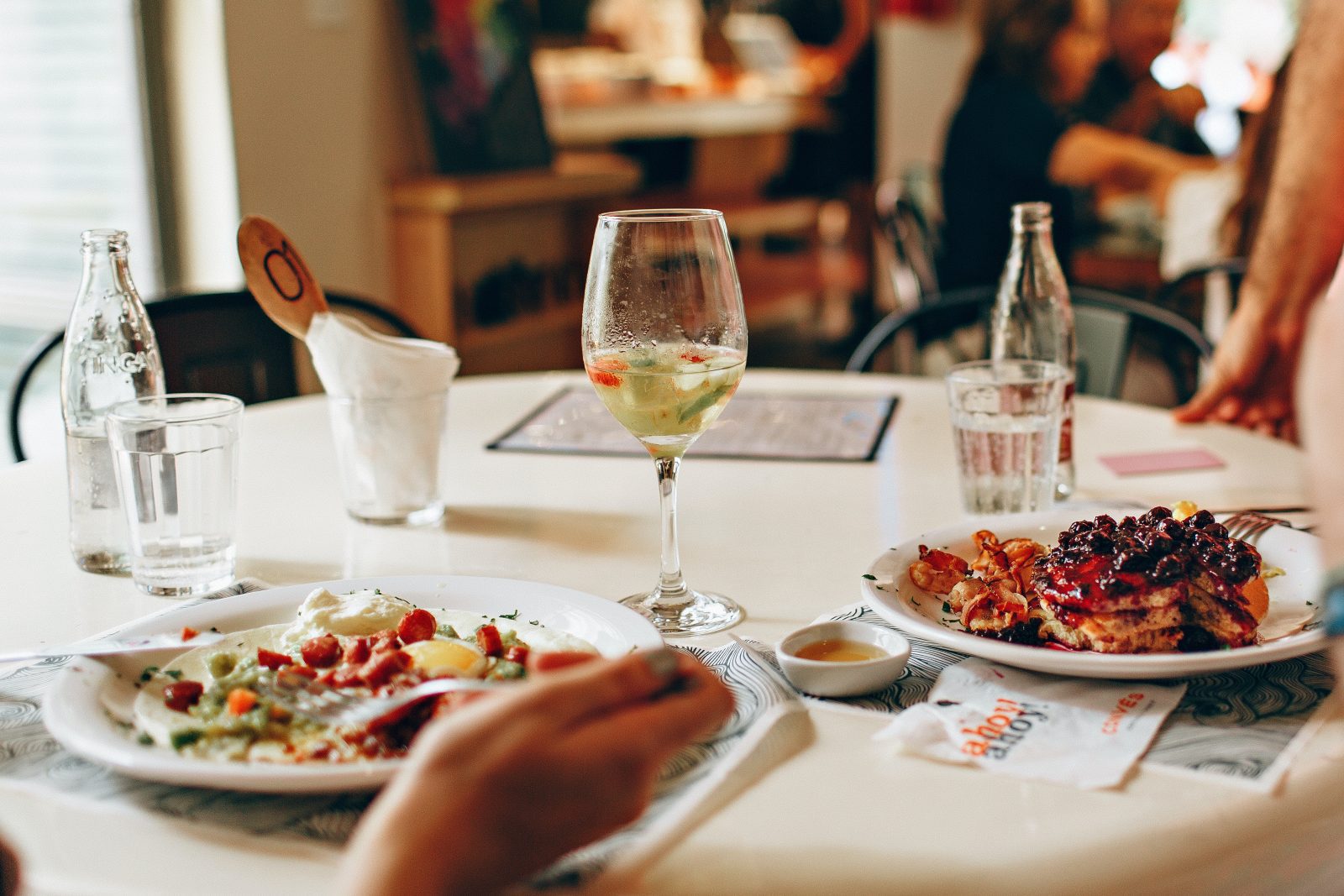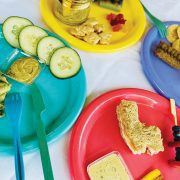9 Social Skills Kids Learn From Eating Out

by Christa Melnyk Hines
While your budget might put the squeeze on dining out regularly at restaurants, don’t completely cross the option off of your meal-time menu. Eating out, even occasionally, can help kids develop communication skills and learn acceptable behavior in a public place.
Manners.
Basic etiquette informs those around us that we’re sensitive to them and aware of our surroundings. Consistently practice manners around your family’s dinner table to lay the groundwork for eating out. Whether you choose to dine at the mall food court or a sit-down establishment, role model how to place a polite order.
Coach your youngster to say please and thank you when the server delivers beverages and food. If your vigilant pupil observes another’s lackluster manners, ask him how he’d conduct himself differently.
Speaking up.
Just when you think your child doesn’t have volume control, her voice drops to a whisper when ordering a drink. Before the server arrives, discuss the menu choices and prep her about what to say. Remind her that because restaurants can be noisy, she should speak up in a clear voice while ordering.
Eye contact.
When your child orders, remind him to look at the server. Eye contact denotes confidence and signals polite respect. The skill isn’t easy for many people, especially kids who are apprehensive about interacting with people they don’t know. With time, repetition and maturity, kids can develop this valuable skill.
Self-confidence.
Uncertainty is the root of fear. Start small, role-model and practice. Preschoolers can order their own drinks (limit choices to ease decision-making) and work up to ordering a main meal. Encourage them to make specific requests like, “May I please have some ketchup?”
Got a kiddo who clams up when talking to adults? Avoid labeling him as shy. Instead place the order for him by saying, “You wanted the cheeseburger, right? What kind of cheese would you like?” This gets him involved in the process. Eventually, he’ll grow more confident. Further support him by responding to questions that he’s unsure how to answer.
Social cues.
Eating in restaurants helps kids recognize social cues like body language, facial expressions, tone of voice, and boundaries. These non-verbals help us discern appropriate behavior in a particular environment.
For example, you might say: “People talk quietly in this restaurant. We need to keep our voices down too so that we don’t disturb them.” Or “See how everyone is sitting down in their seats at their own table? We don’t run around or reach our hands across to other people’s booths because that bothers them.”
Self-control.
Dining out often requires kids to stay seated for longer periods of time than they do at home. Set your family up for success by initially choosing kid-friendly places that don’t have long waits.
Small talk.
According to the Family Dinner Project, meal-time conversation can help build a child’s vocabulary. Furthermore, eating out together fosters small talk skills and family connection. Ask each other questions. Discuss sporting events, the weather, the upcoming weekend, or tell a humorous story.
Flexibility.
Even if you’re packing up your meal early on your first few outings, keep trying. Restaurant experiences don’t always go smoothly. Kids may not like the food. They’ll complain, whine, and express boredom during long waits. But over time, they’ll get better at going with the flow.
Remember, you’re treating your youngsters to more than dinner out. They’re indulging in essential, real-life social skills that they’ll (someday) be grateful you taught them.









